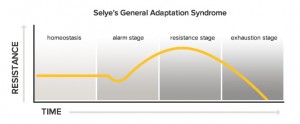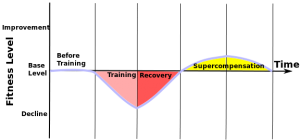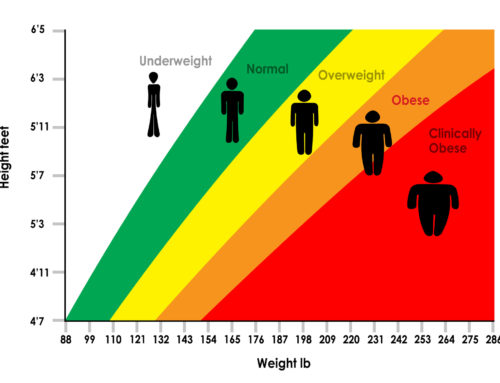One of my favorite movie comedies, The Three Amigos got me thinking of how paradoxical it is that you have to fail to win. Yes, that’s right, you have to lose to win at the battle of increasing your fitness capacity. I tell people that exercise is just getting hot, sweaty and tired, but training on the other hand has a purpose and desired outcome. It is important for those of us who pursue fitness to understand the basics of how fitness is built. In general, your body has to be stressed or fail at the required demands, recover, and then adapt. It is this process that makes you stronger, more enduring and better learned to perform. In whatever fitness endeavor you pursue, the stress, recovery, adaptation process is vital to your success. This is where I have a problem with most trainers and fitness programs. Yes, doing something is better than nothing, but as professionals at what we do, we should be able to provide to our client population the direction and guidance to help them understand and realize their fitness goals.
Want to get STRONGER? You have to consistently apply loads to the body that require you to grow! The more consistent you are, the more likely you are to grow. Want to improve endurance? You have to train with aerobic and anaerobic training to improve your endurance capacity. But, doing the same thing over and over not only doesn’t help you maintain capacity it actually decreases over time with aging.
This process can best be described by the General Adaptation Syndrome (GAS) described by Hans Selye in 1930. GAS is the process in which the body restores itself to balance, or homeostasis, in response to stress. GAS offers important application when designing fitness programs. For any trainer or coach, the understanding of this process and its role in improving performance is paramount. Selye focused on the hormonal response with non-athletic populations, but in the 1960’s Russian sports training theorists used his concepts to explain how an athlete’s performance improved with the application of training stress. Not all programs are equal, but just about any program can improve the capacity of a novice. But it is the learning of this process and applying it practically that makes for a good coach.
GAS has the following stages;
The Alarm Stage – when stress is applied this is the initial response. During this phase the body produces hormones that are responsible for supporting the fight or flight response which relates to instinctual survival. When stress is experienced during training, the body rapidly tries to respond to the acquired demand.
The Resistance Stage – or also known as the adaptation stage, occurs if the stress continues or recurs for a period of time. This is also when adaptation starts and the body makes adjustments to the specific type of training that has been applied, i.e. strength, endurance or interval training. The type, intensity and duration of the training determines the level of protein synthesis that occurs after.
The Exhaustion Stage – this stage occurs when longer term stress is not removed. At this stage, athletes can become fatigued and function suffers. If this stage persists and the stressor is not removed, over training can occur.
When training (stress), recovery and adaptation are functioning correctly, the ultimate goal is super compensation. Super compensation is the post training period when the trained parameter/capacity has a higher level than it did before the stress. Super compensation is what makes us stronger and more enduring.
Have you ever gone into the gym to do a training session and just didn’t feel it? Whether it was emotional, physical or both, you just didn’t have it in you. I had that happen recently. I had done a heavy strength session the evening before and went into the gym to do some simple cardio and movement, and I was not ready to train. When this occurs, I try to get my mind right by focusing on the “just get it done mentality, it’s good for you.” But I could definitely tell that I needed more recovery from training stress. Self awareness is an important skill to learn to train at an optimum level.
For practical application of GAS, training programming, rest/recovery cycles and nutrition should reflect what is needed in relationship to the specific stress. For example, for strength training there needs to be adequate rest between training sessions 48-72 hrs, proper rest/sleep (7-8+ hrs), hydration, and plenty of protein (.7-1g)/body weight lbs., carbohydrates/fats, and rest from outside stressors. Stress from external factors such as work, family or emotional stress can affect recovery. Athletes should rest as hard as they train! This is even more important for masters athletes due to the slower recovery cycle. You also have to remember that “intensity” is not only related to how fast or hard you perform an athletic task. Intensity also relates to load. For athletes that are doing 5-6 high intensity interval training sessions and strength training 3-4 sessions per week, it is very difficult to recover enough to adapt and not harbor in the exhaustion stage. Eventually, performance suffers and is self regulated by frustration, injury or emotional distress. Even though we have improved science, nutrition, supplements etc…human biology remains somewhat unchanged. What we hope is that we get better at how we train and recover so that we can maximize our efforts.
Remember these principles when training;
- The purpose of training is to cause your body to adapt to stress
- You should train according to your current level of capacity or just slightly above
- Use a training stress that produces a reasonable amount of fatigue but don’t overtrain
- Always incorporate the recovery time as part of your training program
- Recovery should be long enough to allow for super compensation
- If you have too long of rest between training bouts, de-training can occur
Happy Training!
Coach D







Leave A Comment